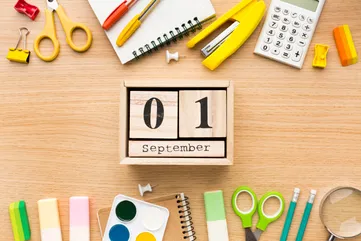Goal-Oriented Coaching
Goal-oriented coaching focuses on helping teens identify, pursue, and achieve specific objectives through structured support, accountability, and skill development.
Why structured pursuit succeeds
Goal-setting theory demonstrates that specific, challenging goals with feedback mechanisms produce higher achievement than vague aspirations. The coaching relationship provides external structure supporting goal pursuit when internal motivation fluctuates.
Research shows that coached individuals achieve goals at significantly higher rates than those pursuing goals independently. The combination of accountability, skill development, and strategic support creates conditions for success.
Grant (2003) found that individuals receiving coaching were significantly more likely to attain their goals compared to those without coaching support. Locke and Latham (2019) demonstrated that goal-setting with external accountability increases achievement rates by up to 65%.
You're not alone
If your teen drifts without direction or sets goals that never materialize, goal-oriented support might help. Many parents struggle balancing pushing their own goals versus supporting teen-generated objectives. Professional goal coaching provides neutral support for authentic teen goals. Families using goal-oriented coaching report clearer direction and improved achievement.
What it looks like day to day
Student
Your teen works with their coach to set quarterly goals, break them into weekly targets, and review progress regularly.
Parent
You see your teen developing their own meaningful goals rather than just complying with parent or school expectations.
Tiny steps to try
Implement goal-oriented approaches in daily life.
- 1
Goal conversations
Regular discussions about wants and dreams. Transform wishes into workable goals together.
- 2
SMART framework
Make goals Specific, Measurable, Achievable, Relevant, Time-bound. Vague goals rarely succeed.
- 3
Weekly planning
Sunday sessions setting week's priorities based on larger goals. [Connect daily to bigger picture](/the-parent-bit/finding-order-in-the-chaos-setting-up-calendars-for-kids).
- 4
Progress celebrations
Acknowledge movement toward goals, however small. Recognition fuels continued effort.
- 5
Pivot permission
Allow goal adjustment based on learning. Rigid goals become prisons rather than guides.
Why goal focus matters
Goal-oriented coaching provides direction and measurable progress, transforming vague desires for improvement into concrete achievements through systematic action.
Goal coaching elements:
• Clear objective identification
• Action plan development
• Progress monitoring systems
• Obstacle problem-solving
• Accountability structures
• Success measurement
This approach creates momentum through visible progress toward meaningful targets.
References
Grant, A. M. (2003). The impact of life coaching on goal attainment, metacognition and mental health. Social Behavior and Personality, 31(3), 253-264.
Locke, E. A., & Latham, G. P. (2019). The development of goal setting theory: A half century retrospective. Motivation Science, 5(2), 93-105.
Ready to help your teen thrive?
Get personalized 1-on-1 coaching to build better habits and boost grades. Join 10,000+ families who trust Coachbit.
Frequently Asked Questions
Should goals come from teens or parents?
Most effective goals originate from teens but align with family values. Parent-imposed goals rarely sustain. However, complete teen autonomy might miss important objectives. Collaborate: parents share values and concerns, teens generate specific goals. Coaches help bridge different perspectives toward mutually acceptable objectives.
What if our teen's goals seem unrealistic?
Support the dream while building realistic steps. "Professional gamer" might be unlikely, but related goals (streaming, content creation, competitive play) provide direction. Unrealistic goals often contain kernels of real interest. Help identify underlying desires and create achievable related goals while keeping bigger dreams alive.
Related Terms
Goal Attainment
Goal attainment is the process of successfully achieving set objectives through planning, persistence, and strategy adjustment, requiring both motivation and execution skills.
Goal Setting
Goal setting is the process of identifying specific, achievable objectives and creating actionable plans to reach them within defined timeframes.
Related Articles

Finding Order in the Chaos – Setting up Calendars for Kids
Creating a calendar and daily schedule for kids can be beneficial to manage school, homework, extracurriculars and hobbies. Color-coding and time-blocking are helpful tools for kids with ADHD.
Read article
3 Ways an Executive Functioning Coach Can Help Your Child
Discover why executive functioning skills are crucial for your child's success. Learn how an executive functioning coach can make a difference
Read article
4 Healthy Habits To Set Your Teen Up For Life
Set your teen up for life with 4 healthy habits. Quality sleep, digital wellbeing, balanced scheduling, and stress management for a successful future!
Read article
